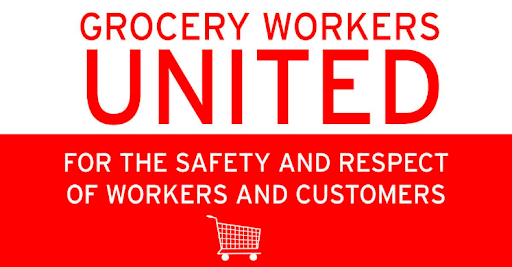COVID-19 Issue Spotlight: Workers’ Rights
 Workers’ Rights
The coronavirus pandemic has fundamentally shifted how our economy functions. While some workers have been able to shift to a work-from-home set-up, tens of thousands have lost their jobs, and many of those who are still employed must choose between a paycheck and their own health and safety. This week’s COVID-19 issue spotlight takes a look at the fight for workers’ rights and the powerful advocacy that grassroots organizations here in Maine are doing to highlight harmful workplace policies while ensuring folks know where their rent money will come from next.
Unemployment and Workers’ SupportSouthern Maine Workers’ Center The Southern Maine Workers’ Center (SMWC) has had a Worker Support Hotline in place well before this pandemic unfolded, but the demand for this support has grown drastically as thousands of Ma ProsperityME Immigrant workers in Maine are particularly vulnerable during this public health crisis. Claude Rwaganje, Executive Director of ProsperityME shares, “Because the immigrant community in Maine is disproportionally at risk both to infection from COVID-19 and to the negative economic consequences of loss of a job, inaccessibility or unavailability of financial relief, and mounting debt, we have effectively paused our in-person financial literacy coursework and pivoted our focus to COVID-19 financial relief assistance and counseling for the community.” This includes unemployment application assistance, helping community members overcome barriers in language and digital access to unemployment forms, and checking in with clients regularly to ensure they understand the process. South Sudanese Community Association of Maine The South Sudanese Community Association of Maine has also been addressing issues of unemployment within the immigrant community. John Ochira, the organization’s president shares, “The South Sudanese Community Association of Maine has and continues to support individuals, especially those with limited English proficiency, apply for and maintain unemployment benefits. Part of our work has been about helping the Maine Department of Labor understand some of the challenges immigrant workers face in navigating the unemployment system. It has become obvious that our community needs a dedicated resource to bridge the gap between workers with limited English proficiency, access to technology and skills to navigate the complex system in which they operate.”
Grocery Workers UnitedSouthern Maine Workers’ Center In addition to the Worker Support Hotline, Southern Maine Workers’ Center (SMWC) has been supporting the organizing efforts of Hannaford employees and customers to demand safer working conditions. They have co-sponsored a petition with Southern Maine IWW that states, “Hannaford is one of Maine’s biggest employers, with 63 stores and a workforce of over 8,500 hardworking Mainers.
COVID-19 Tyson Foods OutbreakCambodian Community Association of Maine Several organizations have leapt into action in response to the recent COVID-19 outbreak at Barber Foods, a Tyson Foods processing plant in Portland. Among the organizations that have stepped up to support these frontline workers is the Cambodian Community Association of Maine (CCAM), as Cambodians make up a significant portion of Tyson’s workforce. CCAM shared in a recent newsletter that, “on May 9th, CCAM board members and volunteers coordinated pick-up locations in Saco and Westbrook where Cambodian families could pick-up food, supplies, and diapers. For families who were quarantined or affected by the Tyson outbreak, we were able to make contactless deliveries directly to their doorstep. We continue to receive requests for aid from Cambodians throughout southern Maine and we will be coordinating pick-ups on Saturdays for the foreseeable future in order to meet the demand.” Chanbopha Himm, co-president of CCAM, shared that CCAM has also been providing assistance with Khmer translation. An article published by the Portland Phoenix writes, “Himm, who is fluent in Khmer, said she has been on the phone with families each evening, sometimes until midnight, answering questions about what they should do to protect themselves and their families.” The article also shares about the ways in which CCAM has been partnering with Maine Center for Disease Control Director, Dr. Nirav Shah (who also speaks Khmer), to develop a video with general information on COVID-19 and how to protect against its spread.
Small Business SupportProsperityME In addition to unemployment support, ProsperityME has been helping immigrant-owned small businesses understand the relief programs available through the Small Business Association, such as the Paycheck Protection Program, and to apply with a participating lender. With one in six Mainers working at a nonprofit, according to the Maine Association of Nonprofits (MANP), small business support during the pandemic must include a nonprofit perspective. For nonprofit-focused business support, our friends at MANP have compiled resources covering the federal relief programs along with specific guidance for nonprofit employers.
What You Can Do
SUPPORT: Support workers’ rights by giving directly to these organizations that are making all of us safer |

